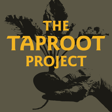
Digging into Detroit's Food Sovereignty Movement
There is a robust and growing network of grassroots organizations supporting Detroit’s urban farming and food sovereignty movement. Kate speaks with Erin Cole and Shakara Tyler, two farmers and organizers working closely with the Detroit Black Community Food Sovereignty Network (DBCSFN), about their current projects and the values behind their vision.
The Taproot Podcast is an initiative of the Midwest Transition to Organic Partnership Program, a project funded by the USDA National Organic Program to support transitioning and organic producers with mentorship and technical assistance and to grow the greater organic community. Learn more at organictransition.org.
You can find new episodes from The Taproot Project wherever you get your podcasts.
Guest Bios
Erin Cole is a long-time Detroiter, educator, and urban farmer. She co-founded Nurturing Our Seeds nearly 15 years ago, born directly from a community need and built through a community-supported initiative. Nurturing Our Seeds is grounded in values of food justice and self-determination. They currently operate a CSA serving over 30 families and lead various community-driven programs that center food education, wellness, and land stewardship
Shakara Tyler is a returning-generation farmer, educator and organizer who engages in Black agrarianism, agroecology, food sovereignty and environmental justice as commitments of abolition and decolonization. She obtained her PhD at Michigan State University in Community Sustainability and works with Black farming communities in Michigan and the Mid-Atlantic. She explores participatory and decolonial research methodologies and community-centered pedagogies in the food justice, food sovereignty and environmental justice movements. She also serves as Board President at the Detroit Black Community Food Security Network (DBCFSN), board member of the Detroit People’s Food Co-op (DPFC) and co-founder of the Detroit Black Farmer Land Fund (DBFLF) and a member of the Black Dirt Farm Collective (BDFC).
Helpful Links
- Nurturing our Seeds
- Detroit Urban Farming: Detroit Historical Society
- Detroit Black Community Food Sovereignty Network (DBCFSN)
- Detroit People’s Food Co-op
- Detroit Black Farmer Land Fund (DBFLF)
Credits
This work was funded and supported by the USDA National Organic Program, Transition to Organic Partnership Program (TOPP)
Hosted and produced by Kate Cowie-Haskell
Podcast art by Geri Shonka
Music:
- Chasin It by Jason Shaw, Tunez by HoliznaCC0
- Ghost Solos by Lucas Gonze– all from the Free music Archive
